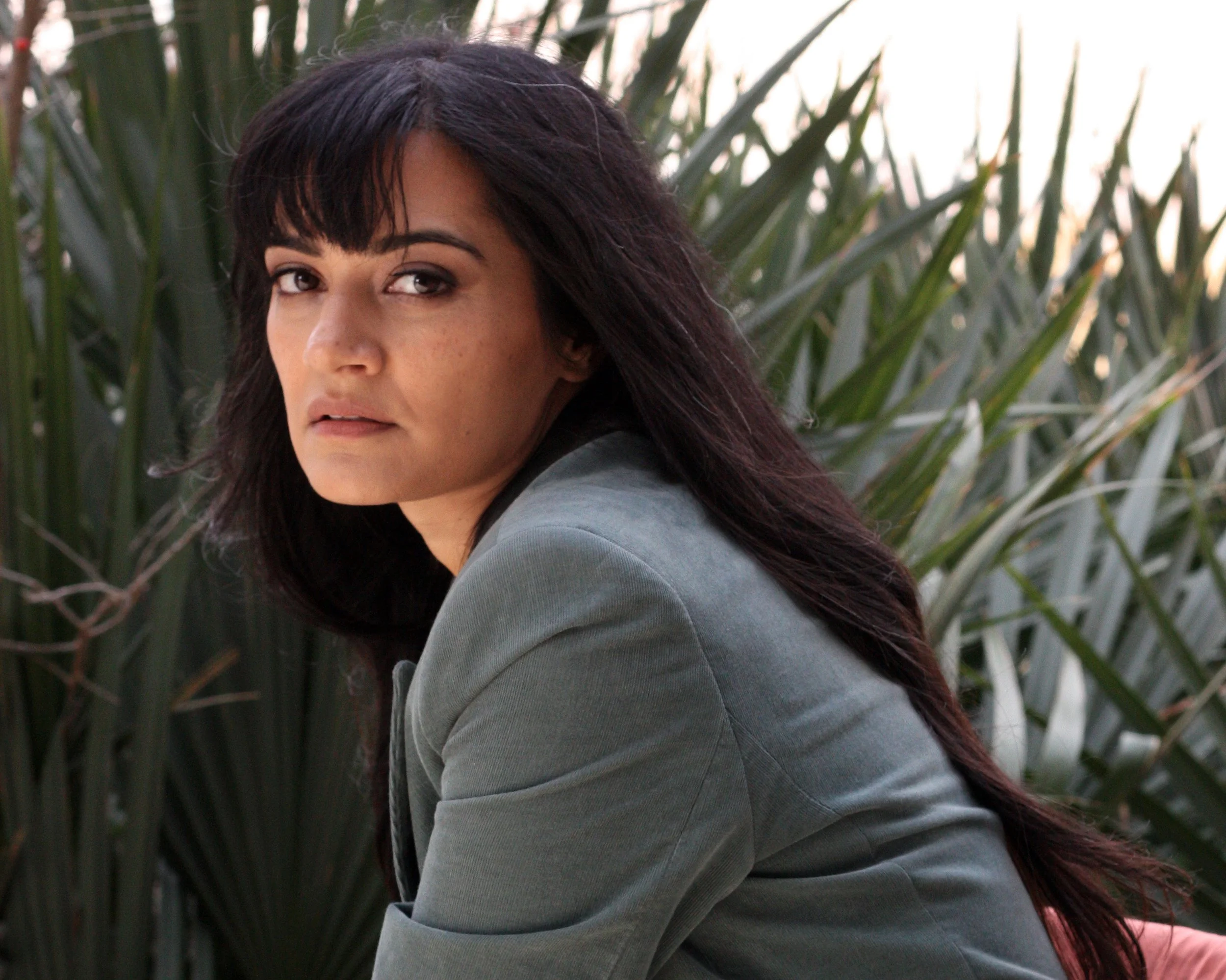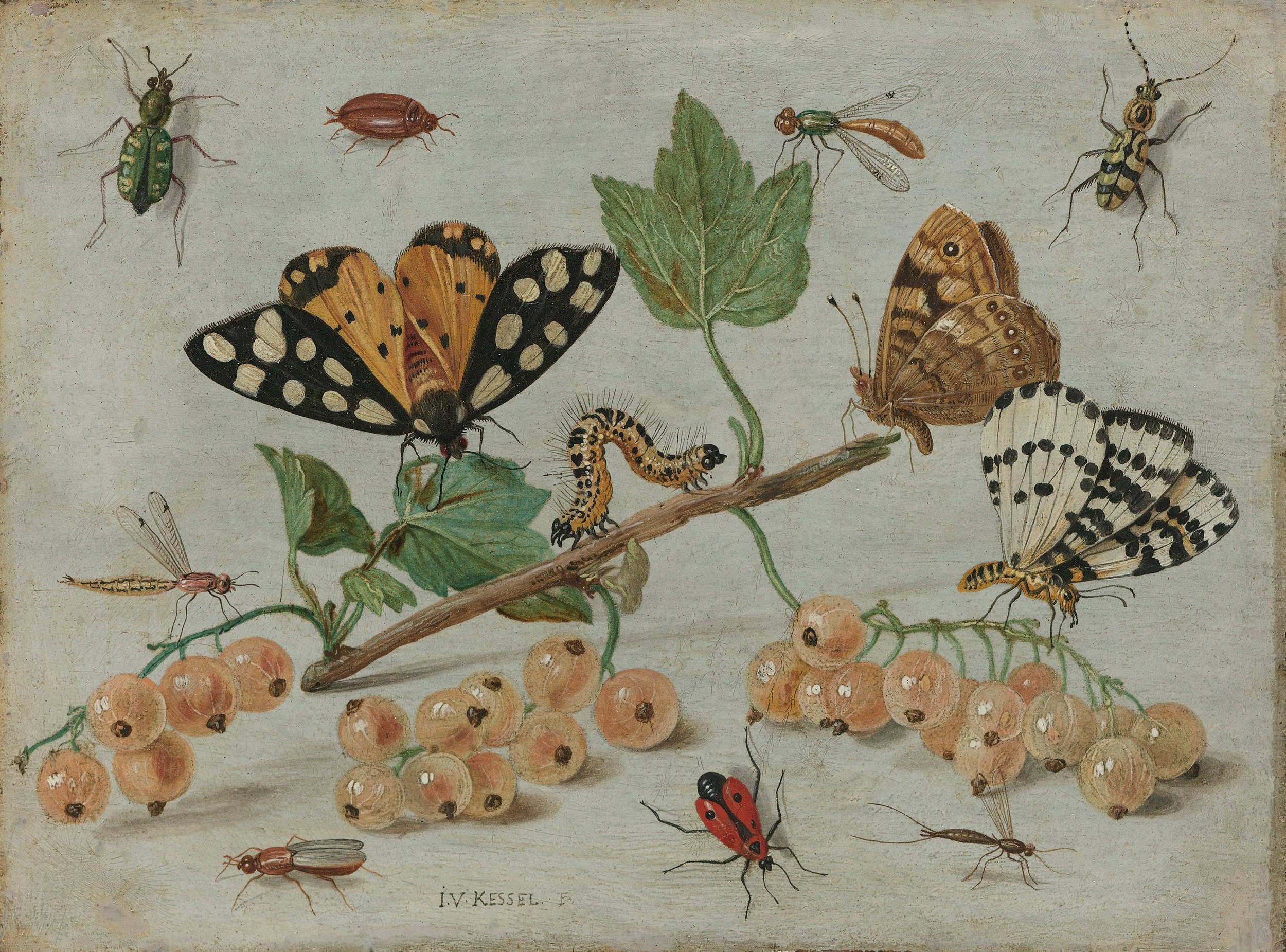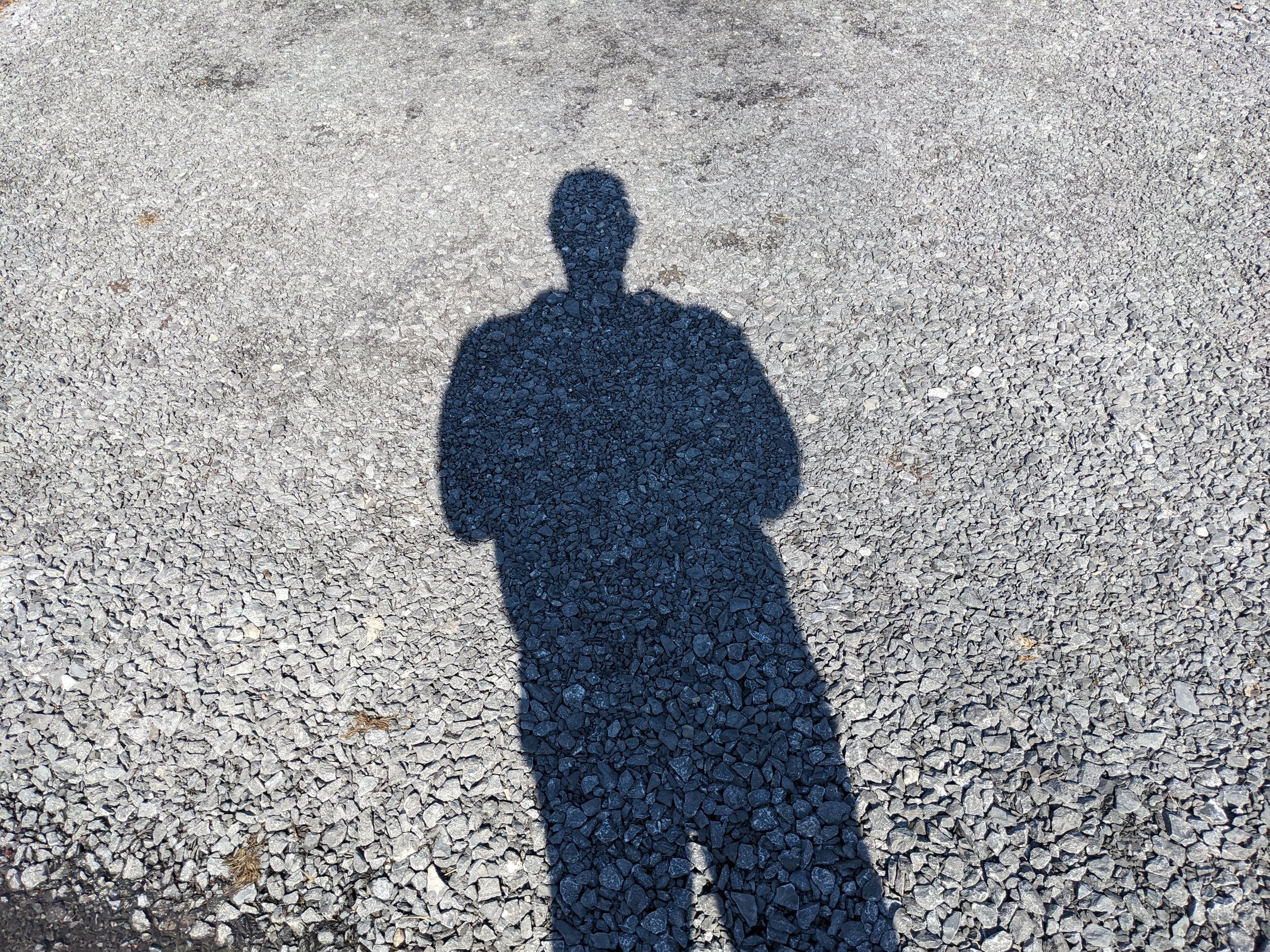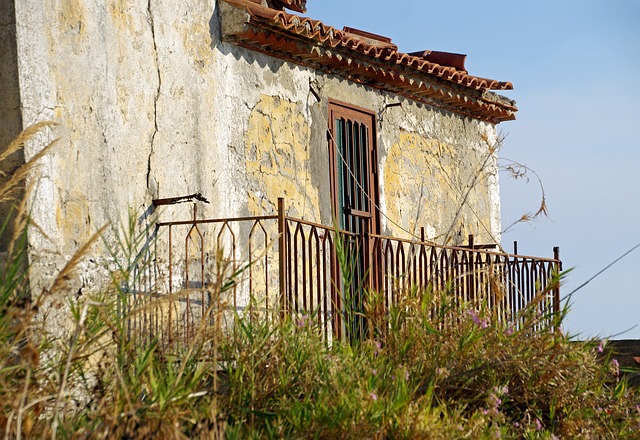Agar Zindagi Rahi Toh

Agar Zindagi Rahi Toh
Urdu, phrase
If there’s life left within me
“Kafan?” I asked the shopkeeper. My fledgling attempts at conversational Arabic, cobbled together by my familiarity with the Quran and Urdu/Arabic cognates, had not taken me as far as I had hoped during this visit to Karbala. The shopkeeper pointed to the shelves along the back wall. Rows of white cloth in clear plastic bags stretched to the ceiling. They all looked the same to me, so I grabbed the first one I saw. The shopkeeper quoted me 20,000 Iraqi dinar. I reflexively started negotiating. “Final price?” My face immediately went red, feeling foolish when the words came out of my mouth. It seemed indecorous to bargain for the cloth that will wrap my body as I’m lowered into the ground.
Preparing for death is normal in my family. It came up early and often. Conversations in the living room often featured the phrase agar zindagi rahi toh between talk of what we left behind when my family fled India during Partition and the latest family gossip. If there's life left within me, then I’ll go to the grocery store on Tuesday. If there’s life left within me, I’ll see you at the mosque on Friday. Between the words, I heard a whisper: Always keep one eye fixed on death.
Agar zindagi rahi toh applied to the mundane and the momentous. Agar zindagi rahi toh, I’ll see my children get married one day. I’ll journey to Pakistan next month, agar zindagi rahi toh. Around us children, the elders often stressed mortality: how all of us were travelers on earth for a short time, so it’s important we be compassionate and generous with the time we have. It was an effective tool for getting kids in line too: “I could go at any moment. Is this the last memory you want me to have? Of you fighting with your sister?”
I was ten years old when the sheikh visiting our little mosque in Irving, Texas mentioned digging a hole in the backyard and lying in it every day. I was too young to understand whether he meant it literally, but it made sense to me to develop that sensory memory—to feel the tightness of the space and touch the cold dirt, so death wouldn’t be the first time I’m underground. There would be no casket—just the kafan separating my body from the earth, simple and vulnerable. I thought about how the dirt would feel through that thin sheet. I imagined the soil falling from the sheet when my soul will sit up to begin its life in Barzakh, the in-between realm. I wondered how insignificant a math quiz would feel if I emerged from a backyard grave every day. Even if I had gained that wisdom at ten, I doubt “agar zindagi rahi toh I’ll finish my homework” would have been acceptable.
“ As long as I could remember, I was taught that our people were story keepers, meant to grieve and remember death through the prism of the tragedy that haunts our history.”
It was hard to escape death. One night, as the aunties and uncles said their long goodbyes in the driveway after a dinner party, my friend Masuma ran to the trunk of her mom’s car and retrieved a large bag which she then handed me. “Here. My mom said to give this to your mom.”
“What is it?” I asked, examining the heavy bag.
“Your mom and dad’s kafans,” she said matter-of-factly. “Your parents asked my mom to get it for them when she was in Karbala.”
That they requested kafans from Karbala was no shock to me. As long as I could remember, I was taught that our people were story keepers, meant to grieve and remember death through the prism of the tragedy that haunts our history. We gathered in the mosque during the Islamic month of Muharram, recounting the story of the massacre in 7th-century Karbala. Young and old sat together in commemoration and listened to plaintive elegies recounting how Imam Hussain, the grandson of Prophet Muhammad, refused to pledge loyalty to an unjust regime. As we sat together, legs crossed, retelling the story each year, I learned that grief has no expiration date. The significance of this place is why many make a pilgrimage to Karbala and acquire their kafans there.
But this awareness had in no way prepared me for the destabilizing thought of my parents’ passing. I felt sick to my stomach and angry at my friend for so blithely handing off such a consequential package. I held the bag far away from me with as few fingers as possible. I tried not to think about losing my parents as I fulfilled my mom’s request to put it in the hall closet. I shook off the idea of their demise as I pushed the bag to the back of the top shelf.
Since then, more kafans have been added to that shelf. Just in case we need one quickly. Living in a house with kafans on standby gave agar zindagi rahi toh a new urgency. We were equipped for death, and that made it feel closer.
“Agar zindagi rahi toh, I can impart these traditions, helping channel the grief and offering the comfort of ritual to future generations. Using the term feels like taking my place as an elder.”
In my junior year of high school, I learned that America has a unique brand of silence around death and grief. When we lost a classmate in a car accident, our high school teachers broke the news just before the bell rang to end the school day. We were left to make sense of it alone as we poured from our classrooms into the hallway. My friends and I huddled together. A few of her closest friends had been furtively pulled out of class early and we knew then that it was to inform them gently. The funeral was the following week. There was a buzz leading up to the funeral similar to the excitement in the halls before a school dance. Perhaps it was nervous energy that no one knew what to do with. There seemed to be a statute of limitations on how long you can mourn openly; after the funeral, no one mentioned her death or how it made them feel. It was as though everyone got together at the funeral and agreed not to dwell on it anymore.
All of this left me confused about how to handle loss. Death’s inevitability was meant to be a part of my vernacular, a reality I would become more comfortable with the more I spoke the words agar zindagi rahi toh. But death meant separation, isolation, and sadness—and I didn’t know how to process these feelings as a kid. I began to avoid thinking about it as best I could. It felt like a tennis ball in my throat every time I heard agar zindagi rahi toh.
When Naniamma, my maternal grandmother, passed away twenty years later, death finally caught up with me and I had to confront the loss I had been primed for as a child. As our family prepared for the funeral rites, I reached for the shelf in the closet where I knew I’d find her kafan. Naniamma liked things to be arranged with immaculate attention to detail. We were similar in that way.
I poured myself into organizing her funeral, feeding the droves of relatives who came to offer condolences and assigning chapters of the Quran for each visitor to read and bless Naniamma’s soul. I hoped getting these traditions right would ease her along the path home. She was the only grandparent I had the chance to know, and now there was no one from her generation left to watch over us. It felt as though someone had snatched a blanket cocooning me on a cold night. Preparing her body for burial seemed like the right way to channel that loneliness into loving action. I shrouded her together with her daughters and other granddaughters. We moved like a murmuration of starlings as we fulfilled that sacred charge. A hand at each other’s back as we stretched and wrapped the cloth, we held each other up, each woman guiding and encouraging the one beside her. I came away from her funeral with a new sense of peace about death, feeling like a part of a whole. Fulfilling this vital death rite and feeling the compassion from those who attended the funeral made me realize that I will move on, but what I leave behind is significant. Agar zindagi rahi toh, I can impart these traditions, helping channel the grief and offering the comfort of ritual to future generations. Using the term feels like taking my place as an elder.
Death is a dialect I am becoming comfortable speaking. I write about my grandmother and others I’ve lost more than I thought I would. I reflect on death often in the hopes that when I next face the loss of a loved one, the pain will be less alien. I hope others recognize this growing ease in me, too. I want to be an eager partner in holding grief, someone my friends can bring their sorrow to. And when my time comes, parting from the people I love won’t be as sharp. Perhaps the solitary journey I’ll set out on won’t frighten me as much, because it’s a journey I’ve hopefully helped ease for those I love. A sort of fluency through immersion.
My trip to Iraq was my first time visiting the holy shrine of Imam Hussain in Karbala. Entering the shrine felt like stepping too close to the edge of a waterfall: all discombobulating energy and overwhelming beauty. The profound grief of the 7th-century massacre the city was built upon unsettled me. But stepping into the shrine complex filled the empty parts of me with a sense of rootedness that this Brown, Texan kid of immigrants was in desperate need of. It was a wholeness I had never felt before with thousands of pilgrims from around the world united in a desire for a balm to their pain, whether they were facing illness, the loss of a child, or other sources of grief.
Inside the shrine room, I was at the mercy of the crowd. No space to move forward, I had no choice but to let the crowd’s undulation propel me in every other direction except where I wanted to go. Eventually, the throngs of bodies got me to the shrine for a few breaths until I was absorbed back into the masses to make room for others. Over the clamor of the pilgrims’ most earnest prayers mixed with the heavy energy of grief, it was as though the Prophet’s third grandson said, “You are my guest. Make yourself at home because it is your home, too.”
Like the surrender in the shrine rooms, I felt an invisible crowd moving me into the shop across the road, and I didn’t fight it. I was moved to ask the man where the kafans were located. He placed one in a bag as though I were buying something as prosaic as a coffee mug, but to me it was a hallowed thing. I clutched it close on the walk back to the hotel.
When I returned home, I put it in the hall closet just like the kafansat my parents’ place. Now, I see it every time I grab a fresh hand towel. I imagine myself wrapped in it and hope this peek into my future will help me feel a bit more well-versed in death and grateful for my time on earth. Agar zindagi rahi toh is a reminder that my earthly existence is precious, so I must be of service in another’s time of need. It reminds me to cherish my loved ones, be present, and serve others, making plans tempered with the proviso agar zindagi rahi toh.
ABOUT THE AUTHOR
Wajiha Sultana is the daughter of Pakistani immigrants based in Austin, TX. Her writing sits at the intersection of identity, social justice, home, and horror. Her poetry has been published in the Threads of Palestine Anthology and her essays have been featured in Brown History. She is currently working on her first novel. You can find more of her essays and poetry on her Substack @wajihasultana.
Read Wajiha’s “Behind the Essay” interview in our newsletter.
Header photo by Rue S.
Author photo by Amber Kazalbash.
Edited by Tusshara Nalakumar Srilatha.










